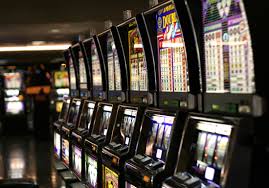Explore the major differences between poker tournaments and casual table play. Learn which style of online games suits your skills and strategy best.
Introduction
Poker has long been one of the most iconic table games, captivating players both in land-based casinos and in the ever-growing world of online games. However, not all poker experiences are the same. For many players, the biggest choice comes down to two distinct formats: poker tournaments and casual table play (cash games).
While both share the same core rules, strategies, and allure, the experience can feel dramatically different depending on which path you take. Tournaments offer high-stakes drama and the possibility of large payouts, while casual table play provides flexibility, shorter commitments, and steadier gameplay.
In this Ibc9 article, we’ll explore the key differences between poker tournaments and casual table play to help you determine which style of online games best suits your skills, goals, and personality.
1. Structure and Format
The biggest distinction between tournaments and casual play lies in their structure.
- Poker Tournaments
- Players buy in for a fixed entry fee and receive a set number of chips.
- Once you lose your chips, you are eliminated (unless rebuys are allowed).
- Blinds increase at regular intervals, adding time pressure and strategic depth.
- The event continues until one player holds all the chips, with payouts distributed among the top finishers.
- Casual Table Play (Cash Games)
- Players buy chips with real money, and each chip represents actual currency value.
- You can enter or leave the table at any time.
- Blinds stay consistent, with no increasing pressure.
- There’s no set end point—play continues as long as you like.
👉 In short, tournaments are more structured and time-bound, while casual play offers freedom and flexibility.
2. Risk and Reward
Both formats come with risks, but the reward structure is very different.
- Poker Tournaments
- Risk: If you bust out early, you lose your entry fee without much playtime.
- Reward: Prize pools can be massive, especially in larger tournaments. Even a small entry fee can lead to a life-changing payout if you finish near the top.
- Excitement builds as the field narrows, making every hand critical.
- Casual Table Play
- Risk: Losses are limited to the money you bring to the table at any given time.
- Reward: Gains are typically smaller but more consistent. You can cash out anytime with your winnings.
- Gameplay is less about chasing a big payout and more about steadily building profit.
👉 Tournaments are higher-risk, higher-reward, while casual play offers steady, controllable stakes.
3. Time Commitment
Time is a crucial factor when deciding between formats.
- Poker Tournaments can last several hours or even days. Once you enter, you must commit to playing until you are eliminated or the tournament ends.
- Casual Table Play allows you to play for as little as a few minutes or as long as you want. There’s no obligation beyond the hands you sit in for.
👉 If you enjoy long sessions and endurance, tournaments are perfect. If you want quick and flexible play, casual tables are better.
4. Strategy Differences
The strategies you’ll use differ significantly depending on the format.
- Tournaments
- Early stage: Play conservatively, protecting your chips.
- Middle stage: Adjust aggression as blinds rise and weaker players are eliminated.
- Final stage: Push aggressively for chip leads, with the goal of outlasting opponents.
- Casual Play
- Focuses on long-term profitability rather than survival.
- Blinds don’t increase, so patience can be rewarded.
- Players often adjust strategy to specific opponents rather than tournament progression.
👉 Tournaments demand adaptability as conditions change, while casual play emphasizes consistent decision-making.
5. Pressure and Psychology
The psychological environment of each format is vastly different.
- Tournaments often feel more intense. With rising blinds and elimination looming, players face constant pressure to make bold moves. The excitement and stress are part of the thrill.
- Casual Play feels more relaxed. Since you can leave at any point and re-enter with more chips, the stakes feel less final, reducing pressure.
👉 Tournaments appeal to adrenaline seekers, while casual games fit those who prefer calm, steady gameplay.
6. Player Types and Community
Different types of players are drawn to each format:
- Tournament Players: Competitive individuals who thrive under pressure and aim for big wins. They enjoy the prestige of outlasting a large field of opponents.
- Casual Play Players: Those who prefer steady action, social interaction, and flexible gameplay. It’s ideal for beginners learning poker in a less intense environment.
👉 Many experienced players enjoy both, but newcomers may find casual games a better starting point.
7. Which Is Better for Beginners?
For beginners entering the world of online games, casual table play is often the safer and more manageable choice. It allows you to:
- Learn the rules at your own pace.
- Manage your bankroll with lower pressure.
- Exit the table anytime if you need a break.
That said, trying a small-stakes tournament can be a great way to experience the thrill of competition and test your endurance.
Conclusion
Both poker tournaments and casual table play offer exciting, unique experiences in the world of online games. The choice depends largely on your goals, risk tolerance, and lifestyle:
- Choose tournaments if you love structured competition, high-stakes drama, and the thrill of big payouts.
- Choose casual play if you prefer flexible sessions, steady winnings, and less pressure.
In the end, many players enjoy switching between both formats, finding variety in the challenges they bring.
Whether you’re drawn to the excitement of poker tournaments or the steady pace of casual play, one thing is certain—poker will always remain one of the most fascinating online games. As fans, let’s continue to support the growth of this timeless classic and celebrate the thrill of competition, just like we do when cheering for our favorite league.













